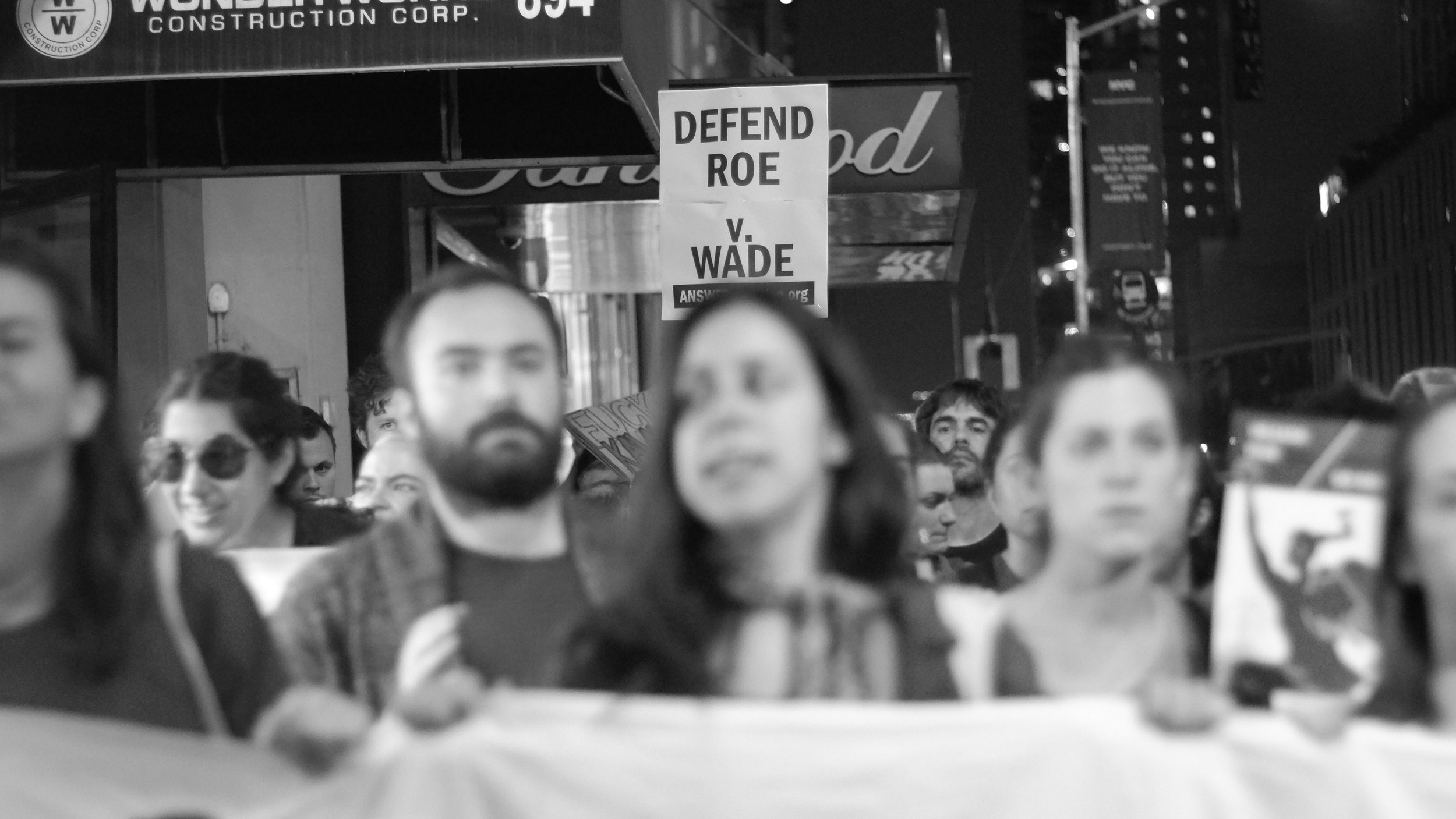
Law in the News
The HULR Blog
The Supreme Court: Just Another Political Actor
Supreme Court Justices refute the claims that the Court has become a political body, but recent trends indicate dramatic shifts in the Court’s role in the mainstream political landscape. The Court has decided a greater number of important cases with the shadow docket, Justices have begun to retire in a strategic manner, and Congress has also politicized the Court in the view of the public with confirmation proceedings. These trends all point toward the Court’s becoming more innately politicized, as well as in the public eye. The degradation of the Court’s apolitical stance has important implications for its legitimacy and prompts the need for reforms.
The “Shadow Docket” Brought Into Light
The “shadow docket” refers to the Supreme Court’s decisions on emergency applications. While emergency docket orders are intended to be used sparingly, the recent rise in “shadow docket” decisions suggests a broader expansion of power by the Court, calling its apolitical standing into question.
As States Legalize Marijuana, What’s Next?
With no nationwide legislation regulating marijuana, lots of recent developments have taken several different angles. For states like New Jersey, the inception of legal marijuana sales has illustrated the need for important safeguards, particularly for marginalized communities and the youth. For others, like South Dakota, the push for legalization has failed on previous occasions, requiring a further push and learning from past mistakes. Some calls for the expansion of marijuana use are more contentious, especially for groups like police officers, a disagreement that is recent, but not universal. Groups like the American Medical Association oppose marijuana legalization, citing its limited benefit, while industry members draw attention to its potential for job creation and revenue. As discussions at the state and national level rage on, it remains paramount to not leave historically mistreated groups, like Native Americans, behind. Conversations about marijuana legislation are ongoing and not perfect, but identifying issues from the onset and actively working to combat them will ensure no group has to suffer mistreatment.
Michelle Wu: The First Climate Mayor
This Blog discusses the present and future plans that Boston Mayor Michelle Wu has planned. She has made mayoral history by becoming the first woman and the first Asian American mayor to be elected. She is also the first mayor to be elected on a Green New Deal Platform. Her plan consists of divesting from fossil fuel companies –which has been successful– electrifying Boston’s vehicle fleet, and investing in housing in Boston, specifically focusing on affordable housing.
The Supreme Court Is Confident It Does Not Need the Will of the People
According to the leaked draft opinion of Dobbs v. Jackson Women’s Health Organization, Justice Samuel Alito’s second argument against Roe v. Wade is that the right to an abortion is not “deeply rooted in the Nation’s history and traditions.” Yet there is incredibly flawed logic in this assessment. Notwithstanding the conservative Supreme Court justices’ fairly public views on abortion, which are in the minority of the United States, the arguments that this draft bases itself on do not align with a typical understanding of the Constitution or historical abortion practices. Instead, the draft ignores settled constitutional precedent and general political and social trends in views on abortion to argue for an anachronistic model of interpretation. This article will discuss the second issue.
The Supreme Court Is Confident It Does Not Need Precedent
According to the leaked draft opinion of Dobbs v. Jackson Women’s Health Organization, Justice Samuel Alito’s first argument against the Court’s holding in Roe v. Wade (1973) is that the Constitution “makes no reference to abortion, and no such right is implicitly protected by any constitutional provision.” Second, the right to an abortion is not “deeply rooted in the Nation’s history and traditions.” Yet there is incredibly flawed logic in both of these conclusions. Notwithstanding the conservative Supreme Court justices’ fairly public views on abortion — which are in the minority of the United States as a whole — the arguments from which this draft stems do not align with the mainstream judicial understanding of the Constitution. Instead, the draft ignores settled constitutional precedent and broader sociopolitical trends in views on abortion to argue for an anachronistic, originalist interpretation of abortion rights. This article will discuss the first of Alito’s two argumentative shortfalls: his ignoring of Court precedent.
Johnny Depp Proves Defamation Cases Have No True Winners
In 2018, iconic actor Johnny Depp was accused of spousal abuse by his now ex-wife Amber Heard in a Washinton Post op-ed. Now, four years later, Depp is suing Heard for defamation and claims that she, in fact, was the abuser in the relationship. Regardless of the outcome of the trial, however, once the stain of “abuser” is tied to a person, it is hard to erase that reputation, especially for an actor so iconic in the industry. However, much of Depp’s pervasiveness in the industry disappeared essentially overnight, and now he is fighting for his spot back, but will most likely be treated as an abuser his entire career. Depp and Heard’s situation exposes the often no-win nature of defamation cases, regardless of innocence or guilt.
Hostile Takeovers, Poison Pills, and Free Speech: Can Elon Musk Transform Twitter to the Global Platform for Free Speech?
From blocking ISIS hate speech to censoring the President of the United States, Twitter has had largely unchecked power in how it moderates free speech as one of the largest social media platforms in the globe. Well-known billionaire and Tesla CEO Elon Musk has been especially vocal on his issue with Twitter’s free speech violations infringing on democracy. Recently, he has decided to take matters into his own hands and has attempted a hostile takeover of Twitter in order to privatize the company and instill his absolutist free-speech ideals in order to make Twitter the global platform for free speech. His informal attempt has been met with resistance from the Twitter board creating a massive legal battle for control as well as leaving many wondering if the legal holes in his offer may be indicative of an ulterior motive behind his move.
Looking Forward: The “Don’t Say Gay” Bill
The introduction of the “Don’t Say Gay Bill,” signed into law by Florida governor Ron DeSantis to limit discussion of gender and sexual orientation in elementary classrooms, has ramifications for a variety of actors — businesses, students, and educators, to name a few — and may be indicative of a worrying trend in recent legislation. Its creation has sparked discourse over the role of corporations’ response after the Walt Disney company saw mixed reactions to its initial silence and later statements of support. And while the impact on children and educators is immediately unclear, the likelihood of mental health concerns and decreased inclusivity paves the way for future harm. Much of the uncertainty stems from vagueness in the bill’s language, which may conflict with precedents about the accessibility of legal statutes. While it seems likely some states will adopt a similar bill, the increased adoption of anti-LGBTQIA+ legislation emphasizes a crucial need for critical consideration and reform.
The Slap Heard Across the World: The Legal Repercussions Will Smith Can Face
This article concerns the slap that millions of people watched transpire on TV during the 2022 Academy of Motion Picture Arts and Sciences Awards. I discuss the events that occurred and then explore whether the violence committed against Chris Rock by Will Smith should warrant a criminal charge. According to California law, I find that Will Smith has committed Battery, and what he did constitutes a crime punishable by a maximum sentence of 6 months in jail and a fine up to $2000. But given his celebrity status, Smith is unlikely to face prosecution.









